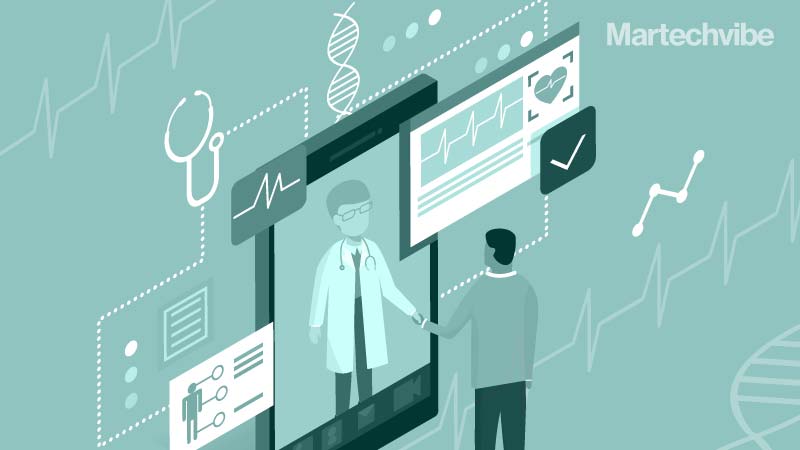Getting Personal With Healthcare
Real-time medical health and personalisation will go a long way in establishing the patient-organisation relationship Healthcare has been evolving with technological progress and clinical research achievements. Many are diving deep into personalised care. Experts believe non-personalised healthcare services will be considered unethical, uneconomic and inefficient in time. Today, customers demand increased personal guidance and tailoring […]
Topics
What to Read Next

Real-time medical health and personalisation will go a long way in establishing the patient-organisation relationship
Healthcare has been evolving with technological progress and clinical research achievements. Many are diving deep into personalised care. Experts believe non-personalised healthcare services will be considered unethical, uneconomic and inefficient in time.
Today, customers demand increased personal guidance and tailoring in the healthcare sector. An Accenture report reveals that 90 per cent of healthcare executives believe relationships with patients need to be strengthened. For instance, Bupa Global launched a lifecare concierge manager to understand a patient’s health issues and analyse their lifestyle and medical conditions.
Personalised care solutions also bridge the gap between clinical appointments. For instance, armbands connected to an app on the user’s phone can evaluate sleep quality, heart rate, and other medical parameters, making the data more accurate, personal, and reliable. It makes it easier to diagnose and identify the health condition early. Computer vision, Machine Learning (ML), artificial intelligence (AI), and predictive model developments can help better detect the disease. Some apps claim to detect cancer from a selfie.
The business world buzzword Conversational AI is revolutionising patient care. While chatbot interactions are expected to exceed two billion by 2023, conversational AI can also help advance personalisation. From timely information sharing and priority emergency care to post-treatment follow-ups, conversational AI has the potential to be a personal healthcare advisor for patients in real-time.
Doctella’s Digital Health Studio for Providers lets healthcare providers create customised patient apps using a simple online tool. These apps interact with sensors on patients’ devices to keep track of their records and notify healthcare providers about patients’ progress.
Other examples include BillScreen, which can detect early stages of pancreatic cancer, and Autism & Beyond that can collect data from parents and children with ASD to analyse and spot developmental delays. Healthcare workers can then recommend proper medications and precise treatment.
Another report stated that 75 per cent of patients want consistent interactions from all departments of the associated healthcare organisation. Organisations can manage personal conversations at scale with optimised omnichannel communication and derive more customer data from personalised service and patient care. Real-time medical health and personalisation will go a long way in establishing the patient-organisation relationship.
Moreover, remote caring and mobile services are in high demand. Institutions are increasingly investing in digital technologies to improve the quality of service, create a centralised repository of health records, enable appointment reminders, and provide easier access to healthcare professionals.
Additionally, researchers developed a personalised AI method to help patients with type 2 diabetes. The technology analyses the electronic health record data and learns treatment patterns of type 2 diabetes patients with similar characteristics. The patterns are used to determine an optimal drug program for a particular patient.
Altibbi is an AI-based digital provider in the Middle East providing integrated, personalised healthcare.
The Middle East is at the forefront of the healthcare and personalisation merger. Dubai recently hosted its first dedicated exhibition and summit devoted to digital technology-driven precision medicine (PM). With an attendance of over 70 international experts, thought leaders, and medical pioneers from Asia, the Middle East, Europe, and the US, the summit talked about moving healthcare from a one-size-fits-all to a targeted, personalised approach.
Dr Maryam Matar, Founder and Chairperson, UAE Genetic Diseases Association, said: “Personalised medicine is certainly transforming the healthcare ecosystem for the better, driven by digitalisation and a rapidly rising corpus of knowledge that is redefining how we perceive the very nature of the origins and development of fatal diseases.”
Abu Dhabi-based VPS Healthcare, a UAE healthcare group, recently announced that it would expand to new global markets and introduce personalised care and expertise as it successfully did in the UAE.
G42 Healthcare has also been leveraging its experience in big data, cloud computing, and AI platforms to offer personalised medical solutions.
Taking advantage of virtual offerings
The metaverse holds opportunities for the healthcare industry, too. Apart from the educational benefits of surgery training collaborations, the virtual world can also be used for creating digital twins that can replicate massive amounts of patient scan data to plan surgeries and monitor disease progression and personalised treatment.
For instance, researchers at Empa have created hundreds of digital twins of patients suffering from chronic pain. They use the data to optimise and predict medicine impact. NASA is also considering using the metaverse to create digital twins of astronauts before they leave for a space mission. Virtualising anatomy can help answer questions such as, “does the ultrasound taken seven months into the mission match the astronaut’s digital twin, despite the impact of microgravity?
Healthcare organisations can integrate into the virtual space to create customised patient experiences. With AR, they can make digital telehealth sessions more personalised.
Personalised medicine
There is a section for personalised medicine within the personalised care environment. But is the pharmaceutical industry succeeding in fulfilling it?
“Healthcare is finally moving towards personalisation,” said Ioannis Tsamardinos, Professor at the University of Crete, CEO & Co-founder at JADBio AutoML. “From personalised risk assessment to personalised diagnosis and therapy selection, I’m hopeful that the industry will move towards personalised drugs created for specific genetic makeups in a few years.”
Ancient Egyptian medicine aimed to incorporate psychological and environmental aspects of a particular patient’s life to treat the problem. Today, many medical scientists follow the same technique to study subjective elements of a disease with empirical methods.
For instance, a recent study stated that scientists discovered brain activity patterns that correspond to clinical pain. It describes the development of an algorithm that can detect chronic pain in individual patients based on their brain activity recorded with magnetic resonance imaging (fMRI).
Nanotechnology and digital health services are the greatest assets of personalised healthcare today. Personalised medicine, an emerging branch of healthcare, explores technological advancements to predict best treatment for each patient.
According to a report, fragmentation of health data sources and the lack of data access policies that can enhance research and innovation are barriers in personalised medicine. Research investments from digital solutions and screening to more minor invasive diagnostics are critical to maintaining personalised systems.
“All technologies that deal with measurement, collection, management, pre-processing, and statistical and machine learning analysis of data are becoming essential to personalised healthcare and medicine. Automated machine learning products will play a pivotal role in spewing personalised models for prognosis, diagnosis, prediction, and therapy selection,” added Tsamardinos.
Although personalisation in the healthcare industry is becoming a focus worldwide, there is still a long way. Meanwhile, they are working on offering more accessible personalisation with streamlined approaches to broader healthcare systems.
If you liked reading this, you might like our other stories
It’s All Fake! Digital Advertising’s Biggest Concern
Caring for CX — MarTech in Healthcare









































































































